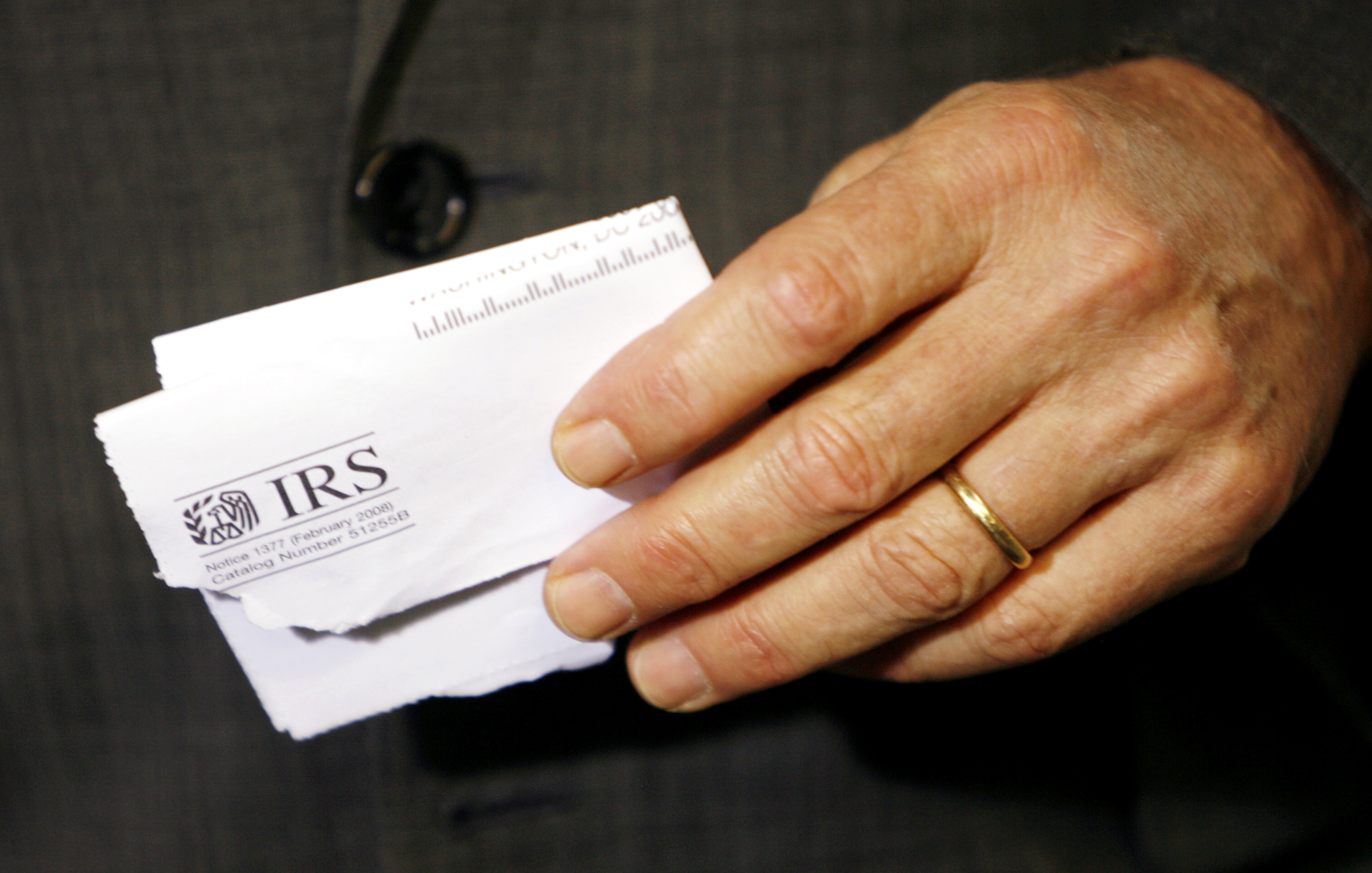US expats feel the burden of FATCA

US anti-tax evasion legislation known as FATCA – the Foreign Account Tax Compliance Act – has caused upheaval among the American expat community and dual Swiss-US nationals living in Switzerland where it was agreed in February.
“People are very angry and upset but some are really scared,” declared Jackie Bugnion, a director and tax specialist at American Citizens Abroad (ACA), a Swiss-based organisation that calls itself “The voice of Americans overseas”.
Alongside Eritrea, the United States is unique in requiring its overseas citizens – estimated to be around six million according to US State Department figures – to pay taxes.
Things have become more complex with the introduction of FATCA, enacted in 2010 in the US as part of stimulus legislation to target rich tax dodgers. FATCA obliges banks and other financial institutions based outside the US to obtain and report information to the Internal Revenue Service (IRS) about income and interest accrued on assets over $50,000 held by US persons.
At the individual level, on top of filing their annual tax return, a US citizen also needs to send the IRS a special form detailing their foreign assets if over a certain amount. This is in addition to FATCA’s older cousin Fbar – the Foreign Bank and Financial Accounts report – for anyone with savings of more than $10,000 abroad, which has to be filed each year.
Switzerland is one of a handful of countries that has agreed to introduce Fatca, which will be phased in from 2014, but US citizens living in the small alpine nation already have their hands full with the new legislation.
Increased scrutiny has forced many to get their tax situation in order for past years in addition to getting to grips with the new regulations.
“Reporting has become more cumbersome and complex,” explained JoAnn Salvisberg, an English teacher who has lived in Switzerland for many years. “It’s a horrendous amount of paperwork. You spend hours and days and thousands of francs getting it together.”
Beyond the heavier reporting requirements, ACA says FATCA is having more serious, damaging effects on lots of ordinary people.
“A lot of banks have said it’s simply not worth the time and effort to have an American client,” said Bugnion. “People have experienced bank account closures. It might be possible to get a current account in some banks but to get an investment account is extremely difficult. Some people have had their mortgages cancelled and some people have been refused mortgages.”
The Foreign Account Tax Compliance Act, better known as FATCA, was passed in 2010 as part of the Hiring Incentives to Restore Employment Act (HIRE).
Starting in 2014, foreign financial institutions will be required by the US government, under FATCA, to report information regarding accounts of US citizens to the IRS.
This law requires foreign financial institutions (FFI) such as local banks, stock brokers, hedge funds, pension funds, insurance companies, trusts, etc. – to report directly to the IRS all their clients who are “US persons” (citizens and green card holders living in the USA or abroad). The penalties for the institutions that do not cooperate are steep.
FATCA also required US citizens who have foreign financial assets in excess of $50,000 to report those assets on a new Form 8938 to be filed with the 1040 tax return starting fiscal year 2011. Instructions for form 8938 were published in December 2011.
(source: American Citizens Abroad)
Discrimination and tensions
Sandro Bartolini, a Geneva-based director of the private consultancy, US Tax & Financial Services, felt attitudes had changed since FATCA was first announced, however: “Everyone was facing the unknown at the beginning. But now the regulations have been published and there is more information out there and it’s not as stringent as people thought. The costs of administrating FATCA will be quite substantial but the pendulum has swung back to the middle.”
He also thought individuals would have a simpler time filing their own tax returns as they should now receive US tax compliant reports from institutions.
Yet Bartolini admitted he had heard of various problems, such as claims Americans were being pushed out of business deals and prevented from climbing the corporate ladder allegedly due to their US nationality and perceptions about tax reporting and FATCA. If a foreign corporation has a ten per cent ownership by an American, under Fatca the firm is obliged to report that ownership to the US.
Facta is also causing tensions within mixed couples, say critics. If financial assets are jointly held, FATCA requires the disclosure of the identity of the non-US spouse.
“My Bernese husband is furious,” said Salvisberg, who has to report to the IRS how much money her husband had in his account last year. “He says it’s none of their business what he has in his account. He’s absolutely right but if I don’t report it’s a criminal act.”

More
FATCA sounds death knell of banking secrecy
Forced to act
All children born on US soil are granted automatic citizenship. Many US citizens living abroad were born to couples where at least one parent was American but spent most of their lives outside the US. With few links to the country, they have little familiarity with the complexities of US tax matters.
Robert*, who holds dual Swiss-US nationality, has first-hand experience of this.
“I was born in the US, but never lived there. No one told me that I had to file tax returns in the US as well. In fact my parents told me that I don’t have to. So I didn’t. That was a huge mistake,” he explained. “I now have two lawyers – one in Switzerland and one in the US – and an accounting firm dealing with my tax problems.”
Two years ago he got a call from the Swiss PostFinance Bank asking to confirm whether he was a US citizen.
“They told me straight that they wanted to be stricter with their US clients and that I therefore had to sell all my stocks at once… so I sold everything I had within 15 minutes,” he went on.
“The next day I transferred all my money to the Valiant Bank where I had other accounts. One year later I received a letter from Valiant telling me I had to sign a contract forcing me to pay any penalties if the bank got accused by the US because of me – the other option was to lose all my bank accounts. I signed; however, they told me that I had better get rid of my US citizenship as fast as possible because they may cancel all my bank accounts all the same.”
The former United States Ambassador to Switzerland and Liechtenstein, Donald S. Beyer, Jr said at an award ceremony in Washington on March 26, 2013: “Current US tax policy to combat tax evasion is having a negative fall-out on Americans working overseas and this needs to be addressed.”
In an official US-Swiss joint press release on 21 June 2012, Acting Assistant Secretary for Tax Policy Emily S. McMahon from the US Treasury Department said:“Fatca is an important part of the U.S. government’s effort to improve tax compliance. The intergovernmental framework announced today provides a second model for implementing Fatca in a way that addresses domestic legal impediments and reduces burdens on financial institutions. We welcome Switzerland’s willingness to strengthen and improve their cooperation with the United States in combating international tax evasion.”
Swearing out
IRS data shows that 932 people gave up their US citizenship in 2012 after 1,781 in 2011 and 742 in 2009.
Bugnion felt numbers were growing in 2013: “Before Fatca nobody talked about renouncing their citizenship, now it’s an open discussion. It’s not ‘will I? but ‘when?’ for many, many people, unfortunately.”
Brian* and Diane*, who have lived in Switzerland for many years, gave up their US citizenship three years ago. This was “indirectly” linked to tax complications when ending work and retiring in Switzerland, they explained.
“Frankly I’ve felt nothing but relief ever since. There is so much scaremongering and lots of tax lawyer vultures are trying to make easy pickings. We have lots of friends in a similar situation and generally the mood is one of hurt and anger,” said Diane.
“We know a lot of people who are working hard to regularise their tax situations. So many got married to Swiss people 30 years ago and didn’t have a clue about tax liability.”
Fatca is causing a lot of damage, they added: “The US government is alienating the people who are its primary ambassadors to the world.”
*names withheld

In compliance with the JTI standards
More: SWI swissinfo.ch certified by the Journalism Trust Initiative











You can find an overview of ongoing debates with our journalists here . Please join us!
If you want to start a conversation about a topic raised in this article or want to report factual errors, email us at english@swissinfo.ch.